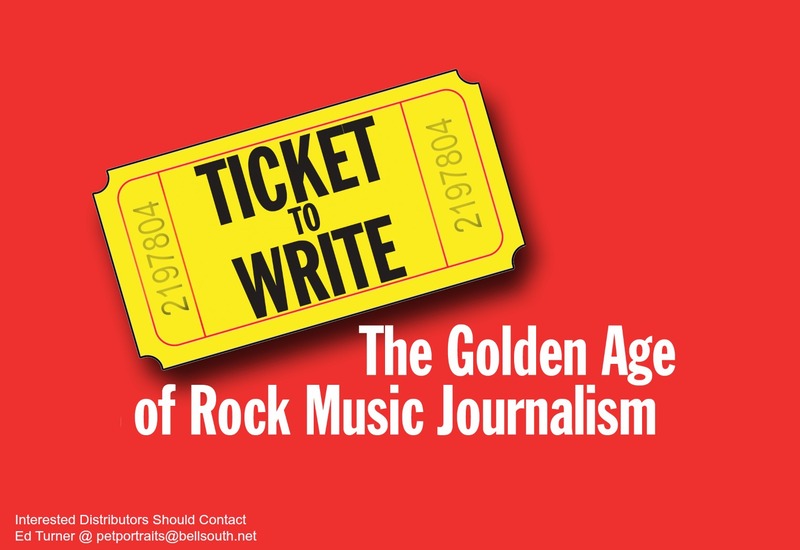Harley Flanagan always been a self-contained musician. After a formal break up of the Cro-Mags he continued on with his career, not ceasing to be a wonderful musician. Harley’s last album came in 2016. With it, becoming one of his most powerful and technical works. In the same year, he had a dabble success made by coming out of his biography – “Hard-Core: Life of My Own”. Following the success, Harley didn’t give up his hallmark of hardworking. Definitely, this tradition he continued to start the recording of his new album. “Dr.Know EP” dedicated to the cult musician and one of the pioneers of hardcore – Garry Miller. t\The album can be called an excursion intoto Bad Brains creativity, in which Harley has always loved.
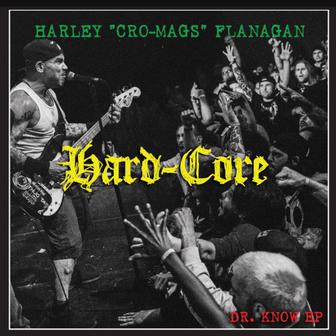
Punk Globe: Among the New York bands, Cro-Mags has taken an honorable spot in music, becoming one of the stars of hardcore in New York City. And in comparison with all the others hardcore bands you had a pretty successful career. As there were such bands like…Negative FX for example, who only released one album. It was a good album, but unfortunately just one. With all your hard work: All of your albums are pretty different. So can you tell us about of your musical evolution or were you just experimenting with different sounds ?
Harley: Each album has its own direction. Sometimes I try to do something completely different, Best wishes was me trying to do something different from "The Age Of Quarrel”, same with “Alpha Omega”, etc, I was trying new things, I still like trying different ideas that are atypical from your average HardCore/ Punk Or Metal. Listen to the intro to "I Love My Life" off my new EP, but then the rest of the EP is way more old school, I like combining elements of HC/Punk and Metal, the only problem is sometimes it doesn't turn out the way you envision it, but that's the chance you take when you are being creative. Each album has its own unique qualities that sets it apart from the others, But now after playing for so many years and writing so many albums I can draw on different elements from all of them. And for the record, I am definitely leaning more towards my roots these days, the songs are getting shorter again, more aggressive, but I am always trying new things. As much as I like to be consistent I don't want to be predictable like so many other bands. I think my last few releases since 2012 have been very consistent in being both experimental and at the same time true to the roots. Its still the same animal, it just got older and bigger, it didn't turn into something else.
Punk Globe: In interviews I often read about beatniks and their connection with punk culture. Especially, speaking with different punk-musicians. You already told a lot about the history of your friendship with Allen Ginsberg. However, talking about your youth, you tell that you lived and spent the night in squats for some time – indeed we can say that you were searching for your place like the beatniks. So it turns out that getting into music you found your place and reached the “end of the road”?
Harley: I wasn't searching, and I definitely wasn't trying to emulate or be a "beatnik", it was circumstantial , I was poor, I was on the streets and I stayed where I could.
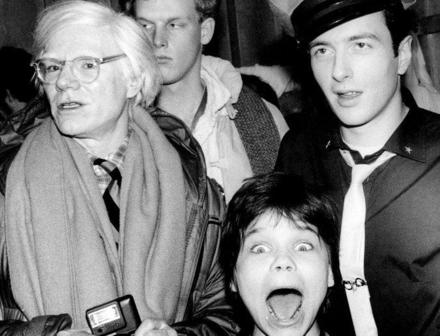
Punk Globe: Now I'd like to focus on your childhood. If such it can be called. You know, one of the things about you that always cheers myself up is photos of Andy Warhol and Joe Strummer, where you get in the frame below. Can you tell me, the fact of your being with such people and how it influenced you?
After all, being in such a society, where the child begins to absorb the attitude of these people into reality. Can you say that these people influenced and stimulated you for becoming a musician?
Harley: No. I was already playing music before I met Warhol or the Clash, being a musician was in my DNA.
Punk Globe: Recently I had a spoke with Jack Grisham and we discussed going back in time with TSOL. He confessed to me that if it was possible to go back, he would have ended his career after releasing the first two albums. Have you ever wondered about what would have happened if you had ended your career after Best Wishes? Or like Sex Pistols did, released only one LP?
Harley: The Cro-Mags really only did the one album "The Age of Quarrel" before the line up of the band members completely changed, so in a sense we only did one album as well.
Punk Globe: But frankly speaking, I have a positive attitude towards your later work: “Alpha Omega” and “Near Death Experience”. If we’ll focus at first of them: They were released when you had already accepted Hare Krishna as a religion. Can you tell me, how Hare Krisna influenced the sound of “Alpha Omega”? After all, there are things that are primarily conveyed by the musicians themselves: your individual manner, your presentation, your emotions. Did it have an influence during the time of the recording?
Harley: By that time I was drifting away from "religions" in general. “Alpha Omega” had a few decent parts in it etc, but it wasn't really the band in the true sense at that point, “Near Death Experience” is a piece of shit album, and is the result of John's treachery.
Punk Globe: You were a part of punk-scene which later transformed into hardcore. Can you tell me, what was it like for you as a musician to observe this transformation?
Harley: I was part of the transformation, I didn't observe it; me and my friends took it to that place. It was a great time to be playing music.
Punk Globe: A few years ago, Lemmy Kilmister tragically passed away. I know that you have often performed with Motorhead. Can you tell me, what sort of relationship did you had with him? As I know you toured together quite a lot.
Harley: He was a huge inspiration as a person and as a musician
Punk Globe: For me interviewing a person who is part of the history of punk-scene and punk-music is so interesting in the Mid 70-s, New York. The place where first punk-musicians become a part of local musical scene. Ramones, Blondie, Richard Hell, New York Dolls. But, despite their role, lots of people think about punk music imagining Sex Pistols, The Clash, The Damned and many others British bands. In your opinion, do you think it was their behavior or in something else they made them stand out?
Harley: In my opinion Punk started in Queens NY with the RAMONES, a lot of people credit the NY Dolls, but to me they were Glam. When the Ramones went to London that changed everything, and all the major British bands were at those shows.
The Cro-Mags as a New York band, and you yourself who had a very strong relationship with CBGB'S. Of course you’ve played hundreds of shows during your career. What was it like to perform there knowing that this place was the starting point for all those people we were talking about right now – from Ramones to Blondie?
Harley: Not as big a deal as you would think cause I started going there in like 1974 or 75. Plus I knew all the first generation Punks so to me it was just business as usual, hanging out in a place I grew up in.
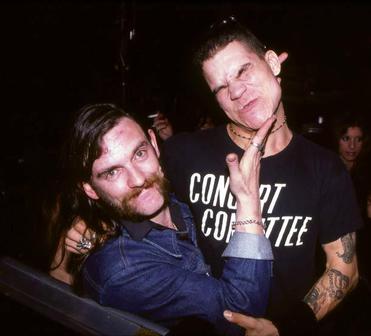
Punk Globe: And how do you remember Hilly Kristal?
Harley: As a friend and almost like an uncle or something; again U gotta realize I knew him since I was a little kid.
Punk Globe: Talking about today’s hardcore. In one of your interviews you said that nowadays you are not too interested in hardcore music. So does it mean that hardcore scene means anything to you? Is the reason that CBGB's (the original home for hardcore groups) closed. Along with it was that particular era of punk rock.
Harley: I'm not into scenes. I am an adult, scenes are for teenagers. To me, when CBGB closed it was the final nail in the coffin of old NY, the end of an era; and for me, the end of my era of NYHC.
Punk Globe: Several times you said that “Revenge” is your favorite Cro-Mags album. Why? After the release of that album, many said that album was the "roots" of the group. Do you have any nostalgia for your first shows?
Harley: In some ways it is; the production was better then the previous albums and me and Parris were better players then when we were kids. I just thought the writing was more mature and thought out, but “The Age Of Quarrel” will always hold its own.
Punk Globe: You took a seven year break between albums. Quite a long time between albums. Was there a reason?
Harley: Lack of funds. No money and no communication.
Punk Globe: I’d like to ask you about your work at the Renzo Gracie Academy. I’m also a teacher. At least I was the teacher a few years ago. I believe that once you are a teacher you are always a teacher. Can you tell the readers how you started teaching children and adults jujitsu? How did the musician's experience helps you?
Harley: I have always been a kind of a teacher, first with my music now with Jiu-Jitsu; it wasn't intentional, it's just the way things turned out.
Punk Globe: But you continued as a musician. You had a few successful albums with Harley’s War you then released an interesting solo-album in 2016. Very powerful and well-coordinated. Can you tell me, did you have any doubts about this album? In the sense that you didn't know how people would feel about the solo album and were you pleased with the response you recieved?
Harley: I had no doubts. Its art, I do it for me not for them; its for myself, if they like it, cool.
Punk Globe: Rumor is that that now you’re working on another solo album. Is it true? And if not – when do you plans to record the next full-length?
Harley: I have about 17 new songs almost completed and I hope to start recording some of them in May.
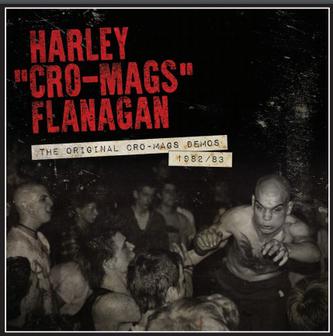
This July Harley Flanagan will release an album of demos made by Cro-Mags in 1982-1983



